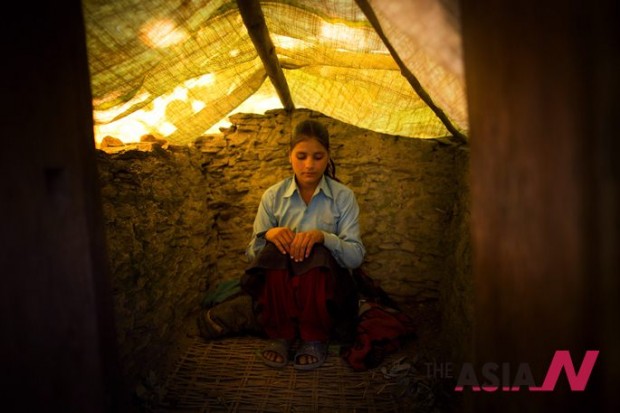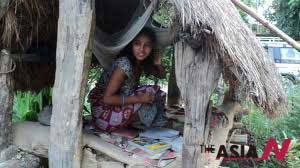Nepali women challenge traditional menstrual practice forced to them
Kathmandu – Women in Dailekh district, in western Nepal, are slowly giving up the Chhaupadi tradition, a system in which the women are forced to stay in the cow sheds or natural caves during their menstruation cycle.
Sad yet true, many women in the remote parts of western Nepal are forced to follow the ill tradition during their menstruation cycle. A few of them fall prey to different diseases and even wild animals as they have to stay away from homes for five days a month.
In the conservative society of the villages, women during their menstruation are not allowed to touch kitchen and prohibited to keep fast, pray and worship. They are believed to become impure during the period.
“Women become unclean and impure during their period,” the villagers said.
However, a few local women have of late been found daring to challenge the traditional Chhaudpadi system.
Laxmi Thapa, 38, of Sattalla village of Dailek, said that she stopped following the Chhaupadi system 10 years ago. These days Thapa is happy to follow the usual household chores even during her menstrual cycle.
According to Thapa, her husband showed reluctance in eating the food prepared by her during the initial days.
As days passed by, Laxmi’s husband started eating the food prepared by her. “Nowadays, he takes the food that I prepare during the period,” she said.
In the beginning, the villagers criticized her for rejecting the tradition. Thapa is just an example. There are a few other women who had also rejected observing the menstruation cycle.
Bhakta Bahadur Thapa, 53, a local man, who runs a shop, said that the women have gradually stopped observing the menstruation cycle.
“There is a need to carry out awareness programme at the remote areas that menstruation is a natural cycle,” he added.
However, Hasana Bista, a local woman, said she wanted to continue the tradition because she feared that the God might punish her for violating the tradition.
Not only in western Nepal, but also in Kathmandu and other areas women of the so called high caste groups of Brahmin and Kshetris do not work in kitchen, do not share bed with their husbands and do not visit temples during their period. However, they do not have to stay in cow-sheds.






















































































